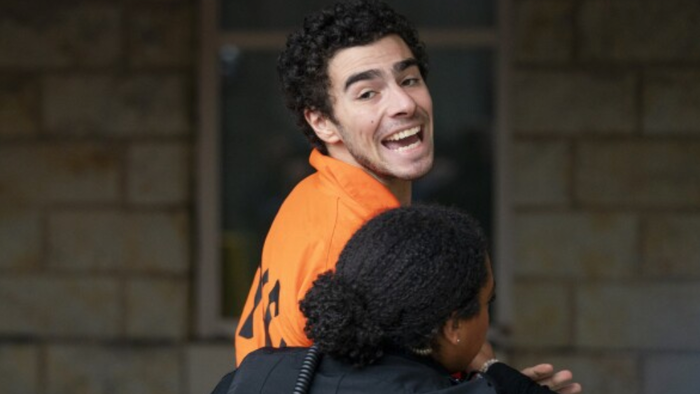In a recent update, independent journalist Ken Klippenstein has released what he claims is the authentic manifesto of Luigi Mangione, the alleged killer of UnitedHealth executive Brian Thompson. Klippenstein asserts that major media outlets possess this document but have chosen not to publish it, raising questions about their editorial decisions. The manifesto, according to Klippenstein, lays out Mangione’s motivations for his actions, emphasizing a disdain for the healthcare system in the United States and the perceived greed of large corporations. He references the disparity between the U.S.’s high healthcare costs and its low life expectancy, criticizing the system and the companies profiting from it, particularly UnitedHealth, which he alleges contributes to societal harm.
Klippenstein’s publication has drawn attention, particularly due to claims of a variety of fake manifestos circulating online. NBC News’ Ben Goggin corroborated Klippenstein’s findings, noting that the manifesto aligns with reports from their own sources. Meanwhile, Frank Figliuzzi, a former FBI counterintelligence director, characterized Mangione as fitting the profile of an “activist killer,” suggesting that his actions may have been driven by ideological motivations related to social and healthcare issues. As the story continues to develop, the complexities surrounding Mangione’s mindset and actions are beginning to surface, leading to wider public discourse on the motives behind violent acts against corporate targets.
Luigi Mangione, a 26-year-old Ivy League graduate, has been charged with murder and has indicated that he will contest extradition to New York City, where his alleged crime took place. His attorney has publicly stated that Mangione will not waive extradition, which has instigated legal processes necessary for his transport to New York. The district attorney’s office in New York has filed for a warrant to facilitate this move, yet crucial details of the criminal complaint remain sealed until the official arraignment.
Mangione’s arrest at a McDonald’s in Pennsylvania followed days of intense public fascination surrounding the case. As he was escorted into court, Mangione expressed his disdain for the process, vocalizing frustration directed at reporters and the system. His outburst reflects not only his personal grievances but also hints at a broader resentment that some corners of the public have adopted toward perceived injustices related to healthcare and corporate misconduct.
Details about Mangione’s past, including a notable back surgery earlier in 2023, appear to add layers to his psychological profile. Reports suggest complicating medical conditions might have influenced his mindset, with friends noting a recent decline in his mental state. Furthermore, prior to his arrest, Mangione’s family had sought assistance from his former classmates after becoming concerned for his well-being, indicating a possible isolation and heightened distress in his life leading up to the tragic incident.
In conclusion, the case of Luigi Mangione encapsulates a troubling intersection of personal pain, societal critique, and acts of violence against corporate figures. While Klippenstein’s release of the manifesto contributes to understanding Mangione’s motivations, the ongoing legal proceedings and public discourse will likely spark further conversations about the healthcare industry and its implications for individual lives. As the legal process unfolds and additional information becomes available, society must grapple with the delicate balance between criticism of systemic failures and the acceptance of personal responsibility for violent actions.

